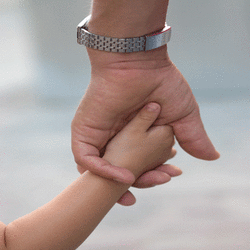
Parents may ask friends whether they know of a possible shidduch for their son or daughter. Parents can also choose a shadchan whom they feel they can rely on. We have many families that invite young bochurim and young ladies, separately, to come to the Shabbos Yom Tov tisch and they get to know them. As a result, there have been many occasions that the host/ess who met the boy and girl, would suggest the names of these individuals to parents that were searching for a shidduch for their children. There have been many, many such occasions that resulted in shidduchim.
When in doubt, who should be consulted for guidance and clarity?
The Rebbe had said many, many times, parents should not push a shidduch. The final decision must be by the two individuals only. When you say there’s a doubt, is the doubt from the individuals or is the doubt coming from the parents? Because according to halacha there’s an explicit ruling in Yoreh Daeh and in hilchos kibud av vaam, which speak about the observance of the mitzvah kibud av vaam that when it comes to the shidduch, the boy or the girl are not obligated by halocho to listen to their parents. Even if the parents say in the strongest words that they’re against the shidduch. If the individuals want the shidduch, and the shidduch takes place, they are not going against halocho.
There was a boy and girl that were ready to get engaged. They wrote to the Rebbe and they received his haskomo and brocho. I then received a phone call from the parents of the girl who said, “Tell the Rebbe that we’re totally against it. We don't want this shidduch.”
The Rebbe invited the parents to visit him. During that yechidus the Rebbe tried to convince them to agree. He also explained the above mentioned halocho, but to no avail. The parents told the girl, “We will never join you at your wedding. We will not support you financially either.”
The girl asked the Rebbe, “What should I do?” The Rebbe tells me, “Tell her that she should travel to Eretz Yisroel and a month later the boy should come there, they should set a date for the wedding. They should call and invite the parents to please come to the wedding.” The parents did not come to the wedding but the Rebbe helped them financially.
A year and a half later, she gave birth to a baby boy so she asked the Rebbe what to do. The Rebbe said, “Call your father and tell him if he comes, he’ll be the sandek.” She called her parents. The mother said, “Don't tell me anything. I don't want to know anything about you.” The father picked himself up and he flew to Eretz Yisroel and was the sandek. Before he left, he asked what was the expense of the wedding and he gave them half of the expense.
Once a father called and said there is a suggestion for a shidduch for his daughter and asked should he look into it. The Rebbe asked me, “Does the daughter know that her father is asking about the shidduch?” I said, “I don't know.” The Rebbe said, “Call her up and tell her that the Rebbe got a phone call from her father about a shidduch for her. Is she aware of this and did she agree to ask?” The Rebbe said, “You know why? It could be that she is not interested in this shidduch and if I’m going to answer the parents yes, they can then say to her: nu, you have to look into it because the Rebbe said so. I am not going to push a shidduch,” the Rebbe says.
What the Rebbe is saying is that parents could advise, so that when a bochur or young girl has a doubt, the parents should try to advise them. However, I want to make it clear that the parents could only advise and not further than that.
When in doubt, who should be consulted for guidance and clarity?
The Rebbe had said many, many times, parents should not push a shidduch. The final decision must be by the two individuals only. When you say there’s a doubt, is the doubt from the individuals or is the doubt coming from the parents? Because according to halacha there’s an explicit ruling in Yoreh Daeh and in hilchos kibud av vaam, which speak about the observance of the mitzvah kibud av vaam that when it comes to the shidduch, the boy or the girl are not obligated by halocho to listen to their parents. Even if the parents say in the strongest words that they’re against the shidduch. If the individuals want the shidduch, and the shidduch takes place, they are not going against halocho.
There was a boy and girl that were ready to get engaged. They wrote to the Rebbe and they received his haskomo and brocho. I then received a phone call from the parents of the girl who said, “Tell the Rebbe that we’re totally against it. We don't want this shidduch.”
The Rebbe invited the parents to visit him. During that yechidus the Rebbe tried to convince them to agree. He also explained the above mentioned halocho, but to no avail. The parents told the girl, “We will never join you at your wedding. We will not support you financially either.”
The girl asked the Rebbe, “What should I do?” The Rebbe tells me, “Tell her that she should travel to Eretz Yisroel and a month later the boy should come there, they should set a date for the wedding. They should call and invite the parents to please come to the wedding.” The parents did not come to the wedding but the Rebbe helped them financially.
A year and a half later, she gave birth to a baby boy so she asked the Rebbe what to do. The Rebbe said, “Call your father and tell him if he comes, he’ll be the sandek.” She called her parents. The mother said, “Don't tell me anything. I don't want to know anything about you.” The father picked himself up and he flew to Eretz Yisroel and was the sandek. Before he left, he asked what was the expense of the wedding and he gave them half of the expense.
Once a father called and said there is a suggestion for a shidduch for his daughter and asked should he look into it. The Rebbe asked me, “Does the daughter know that her father is asking about the shidduch?” I said, “I don't know.” The Rebbe said, “Call her up and tell her that the Rebbe got a phone call from her father about a shidduch for her. Is she aware of this and did she agree to ask?” The Rebbe said, “You know why? It could be that she is not interested in this shidduch and if I’m going to answer the parents yes, they can then say to her: nu, you have to look into it because the Rebbe said so. I am not going to push a shidduch,” the Rebbe says.
What the Rebbe is saying is that parents could advise, so that when a bochur or young girl has a doubt, the parents should try to advise them. However, I want to make it clear that the parents could only advise and not further than that.

